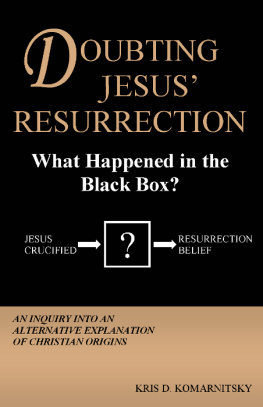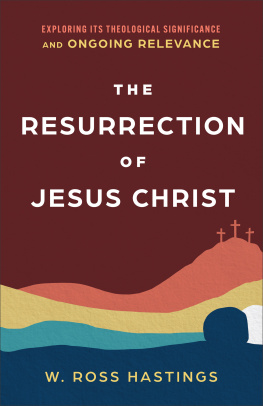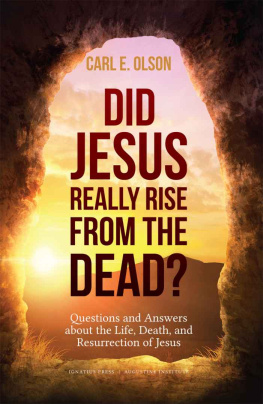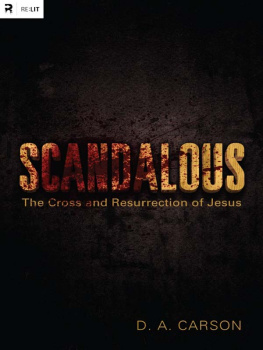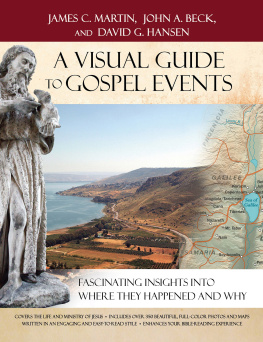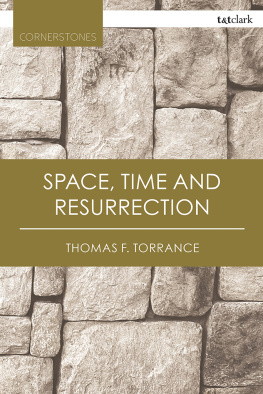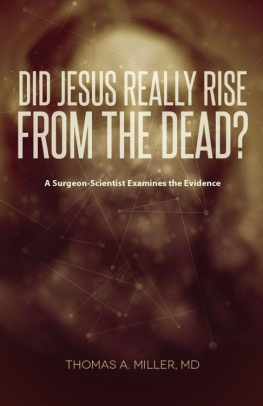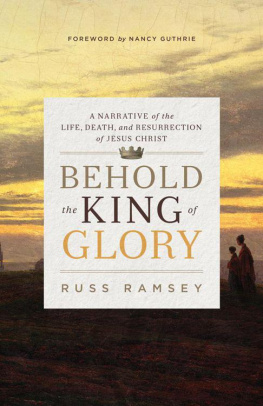Kris D Komarnitsky - Doubting Jesus Resurrection: What Happened in the Black Box?
Here you can read online Kris D Komarnitsky - Doubting Jesus Resurrection: What Happened in the Black Box? full text of the book (entire story) in english for free. Download pdf and epub, get meaning, cover and reviews about this ebook. year: 2009, publisher: Stone Arrow Books, genre: Religion. Description of the work, (preface) as well as reviews are available. Best literature library LitArk.com created for fans of good reading and offers a wide selection of genres:
Romance novel
Science fiction
Adventure
Detective
Science
History
Home and family
Prose
Art
Politics
Computer
Non-fiction
Religion
Business
Children
Humor
Choose a favorite category and find really read worthwhile books. Enjoy immersion in the world of imagination, feel the emotions of the characters or learn something new for yourself, make an fascinating discovery.
- Book:Doubting Jesus Resurrection: What Happened in the Black Box?
- Author:
- Publisher:Stone Arrow Books
- Genre:
- Year:2009
- Rating:5 / 5
- Favourites:Add to favourites
- Your mark:
- 100
- 1
- 2
- 3
- 4
- 5
Doubting Jesus Resurrection: What Happened in the Black Box?: summary, description and annotation
We offer to read an annotation, description, summary or preface (depends on what the author of the book "Doubting Jesus Resurrection: What Happened in the Black Box?" wrote himself). If you haven't found the necessary information about the book — write in the comments, we will try to find it.
Doubting Jesus Resurrection: What Happened in the Black Box? — read online for free the complete book (whole text) full work
Below is the text of the book, divided by pages. System saving the place of the last page read, allows you to conveniently read the book "Doubting Jesus Resurrection: What Happened in the Black Box?" online for free, without having to search again every time where you left off. Put a bookmark, and you can go to the page where you finished reading at any time.
Font size:
Interval:
Bookmark:

Endorsements and Praise for this Book
Rare is it when a lay author puts in the effort of wide research, gathers the references to every point together, interacts with the leading disputes, and offers something soundly argued that hadnt been so well argued before. Komarnitsky does all of that and presents a surprisingly excellent demonstration of how belief in the resurrection of Jesus could plausibly have originated by natural means. Though I dont always agree with him, and some issues could be discussed at greater length, everything he argues is plausible, and his treatise as a whole is a must for anyone interested in the resurrection.
Richard Carrier, Ph.D. Ancient History
If you liked my book Beyond Born Again, youre going to love this one by Kris Komarnitsky! He shows great acuity of judgment and clear-eyed perception of the issues. He does not claim to have proof of what happened at Christian origins, but he does present a powerfully plausible hypothesis for what might have happened, which is all you need to refute the fundamentalist claim that things can only have gone down their way. By now it is a mantra it is also nonsense, and Kris shows that for a fact.
Robert M. Price, Ph.D. Theology, Ph.D. New Testament
Komarnitsky is addressing an important topic in a considered and rational way. This book offers the open-minded reader an opportunity to work through some of the key questions surrounding the Easter mystery that lies at the heart of Christian faith.
Gregory C. Jenks, Ph.D. FaithFutures Foundation
Clearly written and well argued, Doubting Jesus Resurrection lays out a plausible and intriguing case for a non-supernatural explanation of the New Testament resurrection accounts. Dont be put off by the fact that Komarnitsky is not a scholar his book makes a solid contribution to the historical-critical understanding of these immensely important texts. This book deserves serious attention from scholars and all those interested in Christian Origins.
Robert J. Miller, Professor of Religious Studies, Juniata College
Komarnitsky offers a nice overview of cognitive dissonance concepts followed by a series of jaw dropping stories from history each showing the extreme contradictions believers can accommodate.... In this light, Komarnitsky examines the pressures faced by Jesus followers when his triumphal entry into Jerusalem was followed by torture and death.
Valerie Tarico, Ph.D. Psychology, Author (Huffington Post, July 18, 2009)
Komarnitsky offers significant insight into the rise of early Christian beliefs. The author is well-read. He thinks well. He writes well. He argues well. Hell make you think.
John W. Loftus, M.A., M.Div., Th.M., Author
Komarnitsky has taken a theory from social psychology, Festingers explanation of cognitive dissonance, and effectively and plausibly applied it to the greatest black box mystery of history, namely the stories of the resurrection of Jesus and the related beliefs. Whether or not you agree with Komarnitskys conclusions, in the first five chapters your thinker will become a better thinker, in the final chapter your heart will become a bigger heart, and putting them together you will see life with more perceptive eyes.
E. H. Stecher, M.Div., M.A. Psychologist
An even-handed treatment of all major perspectives on the resurrection traditional and modern, conservative and liberal and an irenic style and tone that match the balanced discussion. This is more remarkable since Komarnitsky is examining one of the most emotionally charged questions in Christianity. Komarnitskys answers are well-documented and carefully considered, and his central thesis is intriguing. Highly recommended.
Rev. Chuck Jones, Atlanta, Georgia
A well-balanced, well researched, and exceptionally well presented treatise, not only on the resurrection story and its origins, but in its comparisons to similar legends/myths. Although those beginning their study of the Historical Jesus or Christian Origins will find the book especially helpful, it will also, in my view, be informative and useful to both theological and historical scholars.
Lloyd Martin, J.D., Practicing Attorney
Published 2009 by Stone Arrow Books.
Doubting Jesus Resurrection: What Happened in the Black Box? Copyright 2009 by Kris D. Komarnitsky. All rights reserved. Printed in the United States of America on acid-free paper that meets all ANSI standards for archival quality paper. Except for brief quotations, no part of this book may be used or reproduced in any manner whatsoever without prior written permission from the author or publisher. Inquiries should be addressed to: Stone Arrow Books Permissions, 138 East 12300 South, Suite C101, Draper, UT 84020.
Unless otherwise noted, the Scripture quotations contained herein are from the New Revised Standard Version Bible, copyright 1989 by the Division of Christian Education of the National Council of the Churches of Christ in the U.S.A., and are used by permission. All rights reserved.
, 1964
Doubting Jesus Resurrection: What Happened in the Black Box?
First Edition (paperback and e-book)
Includes bibliographical references and index
ISBN: 978-0-9825528-0-3
Library of Congress Control Number: 2009909347
Dedicated to my wife Katherine for her loving companionship, to my children in the hope that they will always think for themselves, to Gene Stecher for his encouragement, and to freethinkers everywhere.
D oubt is an understandable human reaction to the claim that Jesus resurrected from the dead. This is true not only for atheists who logically rule out Jesus resurrection on the basis that there is no God, but also for those of us who accept the possibility of God. The problem is firsthand personal experience. Many of us have never experienced God intervene within human history in the way suggested by the resurrection, that is, in a physically direct way. We now and then hear of an incredible event from someone else, a miracle, but it is never anything we can personally verify. We sometimes experience a confluence of events, but closer examination often reveals those events to be more connected than we thought or indistinguishable from random chance. There are times when we think God should physically and directly intervene in the world, but it does not happen. When there is a big gap between firsthand personal experience and a given claim, there is doubt. From a logic perspective it is simple. When we weigh the evidence for any claim, our personal experience affects the result; it is the first piece of evidence to go on the scale and its weight is equal to the confidence we have so far learned to place in our own experiences.
We see the effect of experience-based doubt toward Jesus resurrection in two of our nations founding fathers, both of whom believed in God. Thomas Paine declared:
Thomas Jefferson took scissors and paste to the Bible creating his own Jefferson Bible... without the resurrection in it. Although many people are not as skeptical as Paine and Jefferson, experience-based doubt has at the very least caused many people to honestly ask, could there be something other than Jesus resurrection that plausibly explains the evidence before us?
Many defenders of Jesus resurrection insist there is not. For example, one prominent scholar says:
dications otherwise, events in the gospels are considered historically unreliable unless there are strong indications otherwise.
With the exception of a brief essay on myth growth rates in the appendix, this book will not attempt to tackle the voluminous topic of gospel reliability or the degree of their interdependence and so it is not nor does it pretend to be a comprehensive assessment of Jesus resurrection. Instead, this book will take what I think is a unique approach, coming at the problem from the other direction and in the end coming back to the question of what to make of the gospels.
Next pageFont size:
Interval:
Bookmark:
Similar books «Doubting Jesus Resurrection: What Happened in the Black Box?»
Look at similar books to Doubting Jesus Resurrection: What Happened in the Black Box?. We have selected literature similar in name and meaning in the hope of providing readers with more options to find new, interesting, not yet read works.
Discussion, reviews of the book Doubting Jesus Resurrection: What Happened in the Black Box? and just readers' own opinions. Leave your comments, write what you think about the work, its meaning or the main characters. Specify what exactly you liked and what you didn't like, and why you think so.

